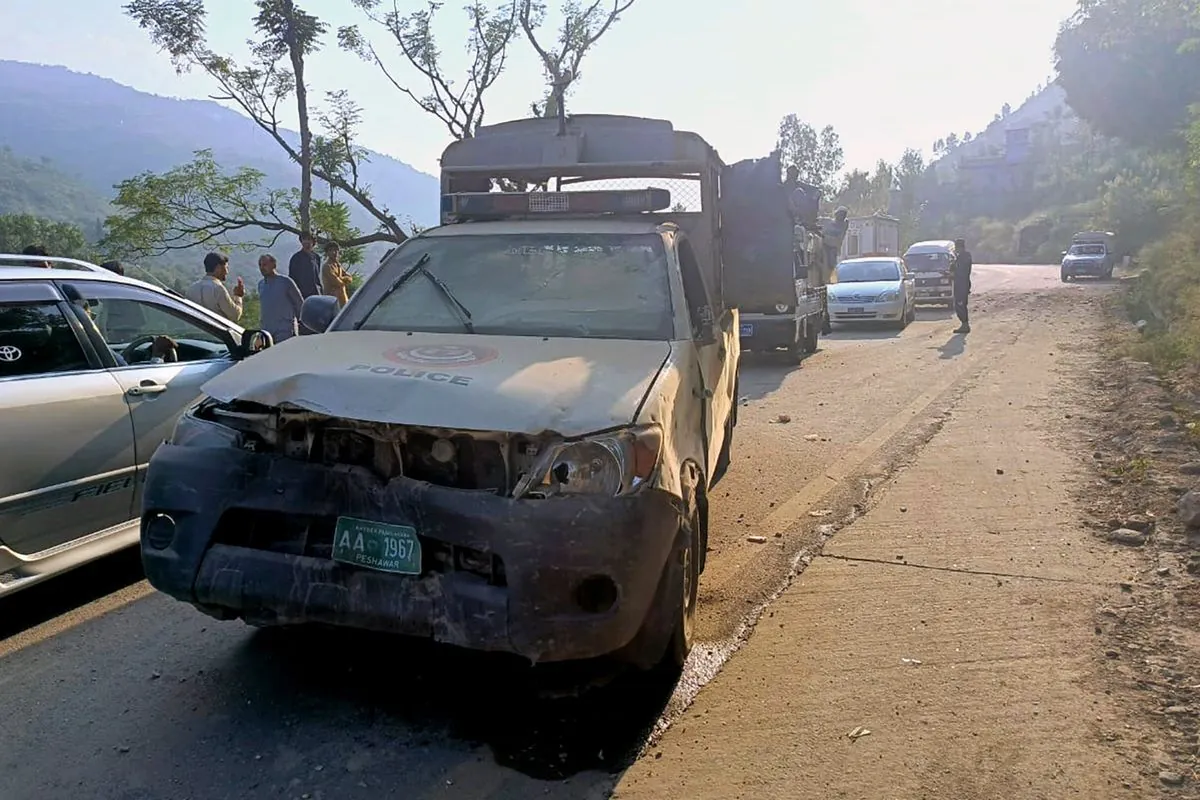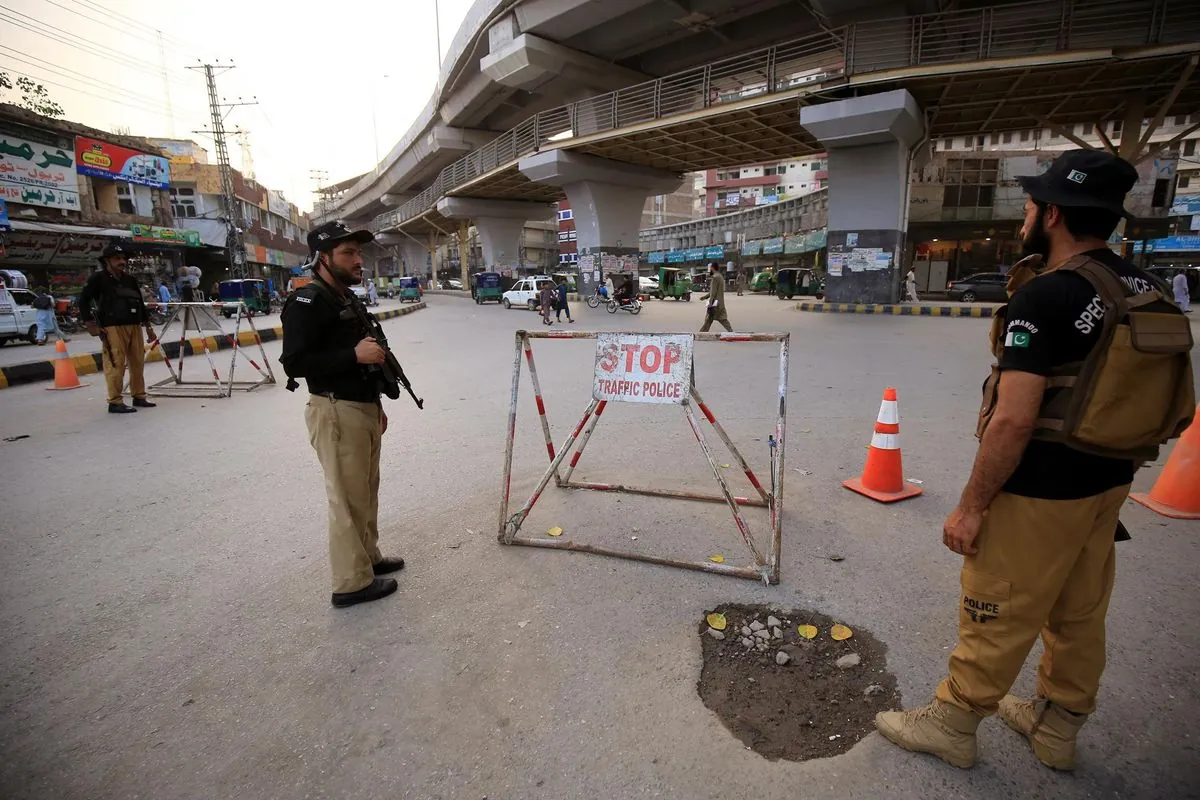Pakistani Taliban Denies Involvement in Diplomatic Convoy Attack
A police convoy escorting foreign ambassadors in northwest Pakistan was attacked, killing one officer. The Pakistani Taliban denied responsibility as authorities investigate a potential security breach.

On September 22, 2024, a police convoy escorting foreign ambassadors in Pakistan's northwest region was targeted in a bombing attack. The incident, which occurred in Malam Jabba, one of Pakistan's two ski resorts located in the Khyber Pakhtunkhwa province bordering Afghanistan, resulted in the death of one police officer and left four others wounded.
The Tehreek-e-Taliban Pakistan (TTP), also known as the Pakistani Taliban, promptly denied involvement in the attack. Mohammad Khurasani, a TTP spokesperson, stated that the group was not responsible for detonating the improvised explosive device (IED) that struck the police vehicle accompanying the diplomatic convoy.
The attack has raised concerns about a potential security breach, as the convoy's route was reportedly known only to police and had been cleared by the bomb disposal unit. Abdullah Khan, managing director of the Islamabad-based Pakistan Institute for Conflict and Security Studies, suggested that an insider may have leaked information about the diplomats' travel plans to militants.

This incident marks a shift in insurgent tactics, as they have traditionally targeted security forces rather than diplomatic missions. The change in approach has prompted calls for improved coordination between federal authorities and local police regarding high-profile visits to the northwest region, which has experienced a surge in violence in recent years.
The attacked convoy included ambassadors and officials from Indonesia, Portugal, Kazakhstan, Bosnia and Herzegovina, Zimbabwe, Rwanda, Turkmenistan, Vietnam, Iran, Russia, and Tajikistan. All diplomats were unharmed and subsequently returned to Islamabad, as confirmed by Pakistan's Ministry of Foreign Affairs.
The TTP, while a separate entity, is closely allied with the Afghan Taliban, who seized power in neighboring Afghanistan in August 2021. This alliance has complicated Pakistan's security situation, with many TTP leaders and fighters finding sanctuary in Afghanistan since the Taliban takeover. The situation has strained relations between Pakistan and Afghanistan's Taliban government, which maintains it does not allow its territory to be used for attacks against other countries.
Authorities are currently investigating the possibility of a security breach, given that information about the convoy's travel plans was circulated only among officials. They are also working to determine who planted the IED along the route.
This attack follows a series of security incidents involving foreign nationals in Pakistan. In recent months, a suicide bomber in the Shangla district of Khyber Pakhtunkhwa province targeted a vehicle carrying Chinese nationals working on the Dasu Dam, Pakistan's largest hydropower project. The incident resulted in the deaths of five Chinese workers and their Pakistani driver.
In response to these security challenges, Pakistan has intensified efforts to protect foreigners and diplomats traveling in the region. The country continues to grapple with the complex security landscape in its northwestern areas, which has had significant implications for foreign investment and diplomatic activities.
As investigations continue, the incident serves as a reminder of the ongoing security challenges faced by Pakistan, particularly in its border regions with Afghanistan. The attack underscores the need for heightened vigilance and improved security measures to ensure the safety of both local and foreign officials operating in these sensitive areas.


































